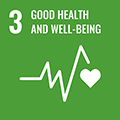Building on a unique survey carried out at Queen’s University Belfast, this project explores policy development in mental health issues and support for young people from adverse backgrounds in South Africa and Northern Ireland.
Research Challenge
The Adverse Childhood Experiences and Mental Health in South Africa project focused on developing research which explored the associations between adversity and mental health problems; and the possible ways that children and young people could be supported in South Africa and Northern Ireland.
Our Approach
There have been three major projects related to this work:
The Youth Wellbeing Prevalence Survey, led by Dr Lisa Bunting, was completed in October 2020 and was the first population prevalence study of the mental health of children and parents in Northern Ireland. The design of this survey helped to inform the development of a parallel prevalence study in South Africa, led by Professor Jace Pillay at the University of Johannesburg.
Professor Berni Kelly led the Building Positive Futures project which was a pilot study on the young people leaving state care in Africa. It also included researchers from the University of Johannesburg but also from the University of Ghana and Makerere University in Uganda. The project involved testing a range of methods, including peer research, to find out more about the experiences and views of young people leaving care in four African countries. It considered the intersections of disability, gender and culture for care leavers and is part of the work of the Disability Research Network at Queen’s which Professor Kelly Co-Chairs and links with a range of countries.
A further research project which relates to the collaboration with South Africa is led by Dr Michael Duffy and focuses on the effectiveness of trauma-informed cognitive behaviour therapy for children who have experienced some form of abuse. This project has explored the potential of training people, across children’s services, to identify issues of trauma and it is hoped that this approach will be adapted and tested in the South African context with colleagues at the Children’s Institute at the University of Cape Town.
What impact did it make?
The opportunity now exists to compare findings and explore contextual issues to inform the development of mental health policy and services in South Africa and Northern Ireland. Including the intersections of disability, gender and culture for care leavers, part of the work of the Disability Research Network at Queen’s and links with a range of countries.
Our impact
Impact related to the UN Sustainable Development Goals
Learn more about Queen’s University’s commitment to nurturing a culture of sustainability and achieving the Sustainable Development Goals (SDGs) through research and education.










